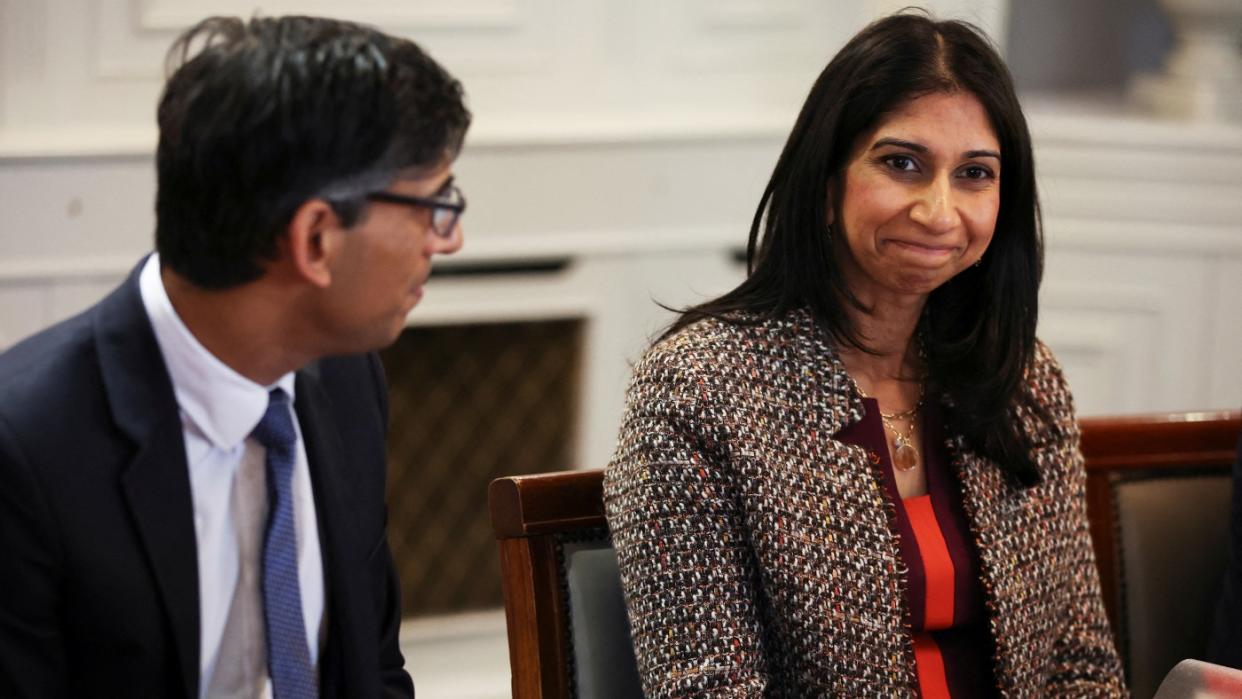What do we mean by multiculturalism?

- Oops!Something went wrong.Please try again later.
- Oops!Something went wrong.Please try again later.
- Oops!Something went wrong.Please try again later.
Rishi Sunak has contradicted his own home secretary by saying that Britain should be proud of its record on multiculturalism.
The prime minister has repeatedly declined to say whether he agrees with the views of Suella Braverman, who told a think tank in Washington this week that multiculturalism was a "misguided dogma" that had failed. But Sunak told the BBC that Britain is "a fantastic multicultural democracy".
Multiculturalism is an "emotive" and "sensitive" subject, said the broadcaster back in 2011, after then PM David Cameron argued that Britain needed a stronger national identity to prevent extremism. Yet "it seems there are as many definitions of multiculturalism as there are columnists, experts and intellectuals prepared to weigh into the debate".
What did the papers say?
Academic definitions of the term "refer to anything from people of different communities living alongside each other" to "ethnic or religious groups leading completely separate lives", added the broadcaster.
The Collins dictionary defines multiculturalism as a "situation in which all the different cultural or racial groups in a society have equal rights and opportunities, and none is ignored or regarded as unimportant".
Braverman's definition of multiculturalism was an ideology that has brought people into the UK with the purpose of "undermining the stability and threatening the security of society". It "makes no demands of the incomer to integrate", she argued, and "has failed because it allowed people to come to our society and live parallel lives in it".
Her words surprised some. Braverman is "a British home secretary descended from Goan Indians from Mauritius and Kenya, married to a Jewish husband, in a government headed by Britain’s first Hindu PM", wrote Times columnist Hugo Rifkind on X, formerly known as Twitter. "What would successful multiculturalism look like?"
LBC's James O'Brien also expressed surprise that Braverman "can say that multiculturalism has failed, when she is a walking, talking exemplar of its success".
Multiculturalism is "the project of giving equal opportunities to diverse ethnic groups while leaving their cultural differences intact", wrote Ellis Cashmore for Fair Observer. He argued that it promotes "acceptance of and respect for cultural difference", with "an elevation of cultural difference to the point where people become curious and want to explore cultures other than their own".
But commentator Nana Akua saw it differently. "Yes, Britain is multicultural, as anyone who walks round with their eyes open can see," she wrote for the Daily Mail, "but 'multiculturalism' is a different thing altogether".
She defined it as "a philosophy of allowing – even encouraging – different ethnic groups to live separately in our towns and cities". She argued that this "encourages the growth of monocultural areas over integration", making it "profoundly dangerous".
Braverman's critics simply misunderstood what multiculturalism is, agreed Tom Slater for Spiked, because they "conflated the fact of living in a diverse society", with "state multiculturalism", which "emphasises cultural difference over common values", and "which puts us all into ethnic boxes, and which deals with citizens on the basis of their supposed 'identity'".
One of the "key problems" with multiculturalism is "the notion that ethnic minorities amount to homogenous blocs", he added, "with a specific culture and outlook, rather than individuals with minds of their own".
Multiculturalism has indeed failed, argued Rakib Ehsan in The Telegraph, and it "threatens to bring down British democracy", because the "importation of tribal ideologies" is "fuelling tensions between its minorities", whether it is "American-inspired racial identity politics, subcontinental-style communalism, or Arab-world sectarianism".
What next?
Braverman may be quizzed on her Washington words when she is interviewed by the Conservative deputy chairman Lee Anderson on GB News this evening. The "divisive" Ashfield MP will meet the home secretary for a "cosy sit-down after her return from the US", said The Independent.
With the Tory conference days away, "Westminster observers" have suggested Braverman's speech in Washington was a "pitch to the Right-wing of the Tory party", in case Sunak leads the party to defeat at the next general election, said The Telegraph.
But Braverman told the PA news agency that this suggestion was "slightly flippant" and she insisted she was working "hand in hand" with the prime minister.

